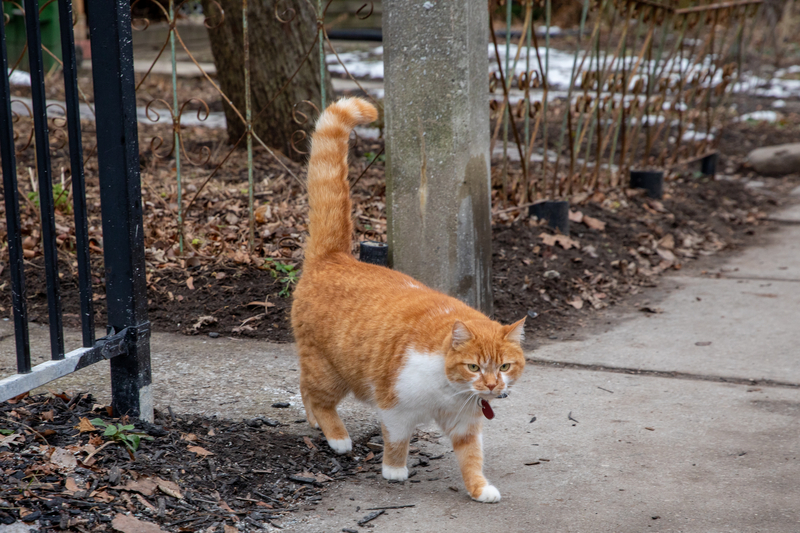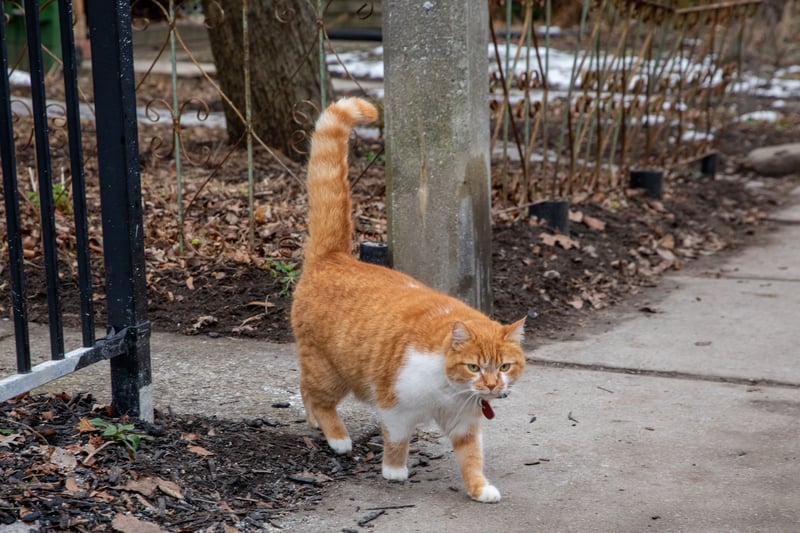
Haitian Group Seeks Trump and Vance’s Arrest for Amplifying “Pet-Eating” Claims: A Deep Dive into a Controversy
In what can only be described as a political drama steeped in misinformation, a Haitian advocacy group is pushing for the arrest of former President Donald Trump and his 2024 running mate, JD Vance, over shocking accusations that immigrants in Springfield, Ohio, have been eating people’s cats and dogs. Yes, it sounds bizarre, but this story has spiraled into a full-blown legal battle that has gripped the attention of both Ohio residents and the wider political world. Here’s what’s really going on.
The Origin of the Claims: Residents Start the Fire
The controversial claims that Haitians in Springfield were eating pets didn’t start with Trump and Vance, although the duo certainly lit the match that set the rumor ablaze on a national scale. According to JD Vance, the junior senator from Ohio, these alarming accusations were initially brought to him by residents of Springfield themselves. Vance, in his defense, has repeatedly stated that he was merely repeating what his constituents had shared with him. At a campaign rally, he explained, “I can only listen to what my constituents tell me.”
The incident has led to many social media parodies.
In Vance’s account, he’s just a messenger, not the source of the claims. However, that’s exactly where the controversy begins to heat up. Despite the fact that the rumor had been debunked by local officials, fact-checkers, and even the Springfield city manager, Vance and Trump took those accusations and ran with them, repeating them to thousands of rally attendees. By amplifying these baseless allegations, Trump and Vance didn’t just make a political statement—they turned a local, unsubstantiated rumor into a national controversy.
Enter the Haitian Bridge Alliance: Taking a Stand
The Haitian Bridge Alliance, a prominent advocacy group that supports Haitian immigrants and asylum seekers in the U.S., quickly got involved. Along with its founder, Guerline Jozef, the group has taken legal action against Trump and Vance, claiming that their repeated amplification of the “pet-eating” accusations was not only harmful but criminal.
In an affidavit filed in Ohio, the Haitian Bridge Alliance accuses Trump and Vance of “orchestrating a campaign of lies” and intentionally spreading fear about the Haitian immigrant community in Springfield. The affidavit asks a court to find probable cause that the former president and his running mate committed several crimes, including “Making False Alarms,” “Aggravated Menacing,” “Disrupting Public Services,” and “Telecommunications Harassment.”
But here’s the thing: they’re not just upset about the lies. The Haitian group argues that the duo’s words have incited xenophobia and could pose a real danger to Haitian immigrants in the area. In their view, false narratives like these don’t just harm reputations—they can lead to physical violence and lasting damage to the community.
Ohio’s Unusual Law: Citizen-Led Prosecutions
The lawsuit is based on a little-known Ohio statute that allows private citizens to take matters into their own hands, legally speaking. In Ohio, a private citizen can file an affidavit if they believe a crime has been committed, requesting that the court find probable cause for an arrest or prosecution. In essence, the Haitian Bridge Alliance is leveraging this statute to demand that the court investigate Trump and Vance’s role in spreading these claims, potentially leading to criminal charges.
Here’s how it works: a private citizen with knowledge of the facts can submit an affidavit detailing the alleged crime, which is then reviewed by court officials to determine if there’s enough evidence to move forward with charges. The Haitian Bridge Alliance and Jozef have done just that, asking a judge to independently assess whether Trump and Vance’s actions meet the criteria for prosecution.
While it’s rare for such affidavits to result in the arrest of public figures, the fact that this legal option exists has given the Haitian Bridge Alliance an avenue to pursue accountability. This isn’t just a symbolic move—it’s a serious legal request that could, in theory, lead to criminal charges.
The Role of Misinformation in Politics
At the core of this controversy is the age-old issue of misinformation. Whether you view Vance and Trump’s actions as politically motivated or simply reckless, there’s no denying that their words have consequences. Misinformation, especially when amplified by influential figures, can have dangerous real-world impacts.
Vance’s defense that he’s “just listening to his constituents” raises an important question about the responsibility of public officials: when does repeating a constituent’s claim cross the line into spreading harmful misinformation? While it’s not uncommon for political candidates to address concerns raised by the public, the problem arises when those concerns are based on falsehoods, and the candidates don’t make an effort to fact-check or correct them.
In this case, both Trump and Vance had been repeatedly informed by local officials, the press, and fact-checkers that the claims about Haitian immigrants eating pets were untrue. The Springfield city manager himself publicly stated that there was no evidence to support these allegations. Yet, Trump and Vance chose to repeat them anyway, further entrenching the narrative in the public consciousness.
The Fallout: Fear, Xenophobia, and Division
For the Haitian community in Springfield, these baseless accusations have been more than just offensive—they’ve been deeply harmful. Haitian immigrants have already faced significant challenges in the U.S., from navigating the asylum process to dealing with cultural and language barriers. Now, they find themselves at the center of a conspiracy theory that paints them as a danger to the local community.
It’s easy to dismiss rumors like these as mere political theater, but for those targeted by such claims, the impact can be devastating. Fear and xenophobia are often fueled by misinformation, and when public figures like Trump and Vance amplify those fears, it can lead to real-world consequences. Immigrant communities may become targets of harassment, violence, or even hate crimes, all because of a false narrative that’s been spread for political gain.
The Haitian Bridge Alliance, through its legal filing, is pushing back against this. They’re not just seeking justice for the damage done to their community—they’re also trying to set a precedent that spreading harmful lies about immigrants won’t be tolerated.
What’s Next: Will the Court Take Action?
At this point, it’s unclear whether the court will take up the case and move forward with criminal charges against Trump and Vance. The legal bar for proving that the duo’s statements rise to the level of criminal activity is high, and it’s possible that the court may decide not to proceed. However, the Haitian Bridge Alliance’s decision to file this affidavit has already sparked a larger conversation about the role of misinformation in politics and the responsibility that public figures have to ensure they’re not spreading dangerous lies.
While Trump and Vance might claim they’re simply echoing the concerns of Ohio residents, the Haitian community argues that they’ve done far more than that. By repeating a debunked and inflammatory claim, they’ve turned a local rumor into a national scandal—one with very real implications for the people involved.
In today’s hypercharged political climate, where misinformation spreads like wildfire, this legal battle is more than just a fight over a bizarre claim about pet-eating. It’s a fight over the accountability of public figures and the damage that can be done when harmful lies are spread unchecked. For the Haitian community in Springfield, this isn’t just about setting the record straight—it’s about ensuring their safety, dignity, and place in America aren’t compromised by false narratives.


 , eating the cats
, eating the cats  .
.  (@Anthraxx187)
(@Anthraxx187)